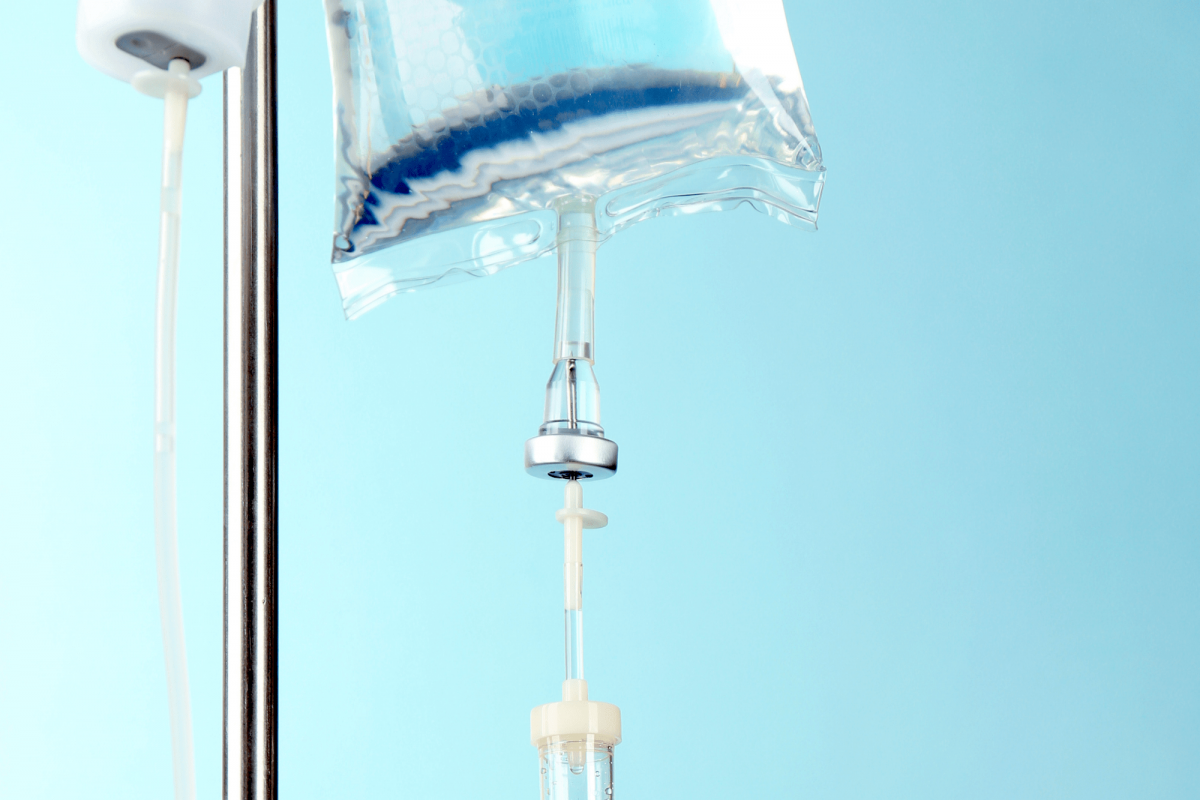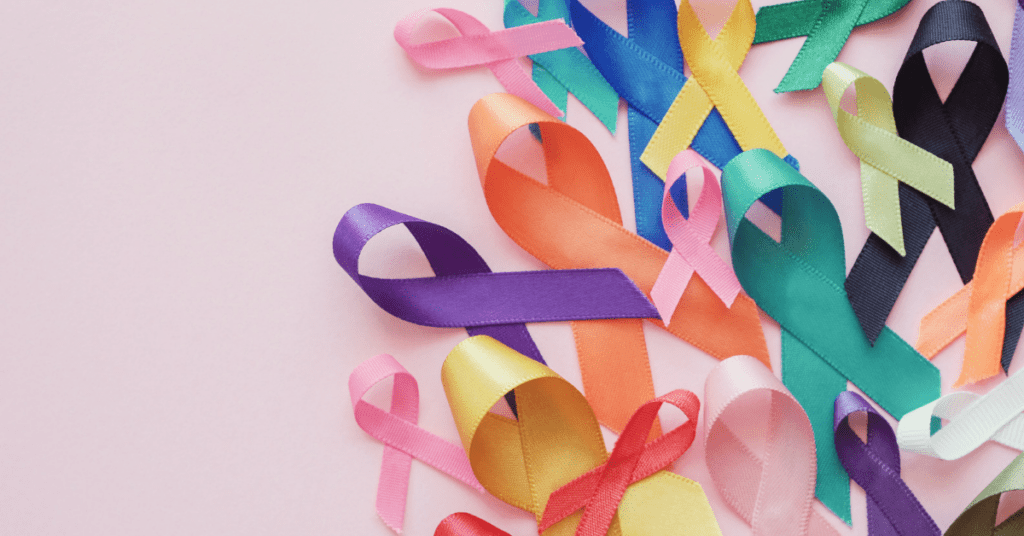If you are about to begin your first round of chemotherapy, you probably have some questions, concerns, and even a few fears. Unless you have had cancer in the past or a loved one who has gone through it, most of us have not personally experienced chemotherapy and all that it entails.
To some degree, your treatment will be unique to your situation. Your oncologist will talk you through what to expect, what drugs you will receive, and potential side effects. Feel free to ask them or your nurse any questions that you may have.
In general, though, most rounds of chemotherapy follow a common pattern. Here are a few typical appointments, recommendations, and side effects you can expect when you begin chemotherapy.
What Is Chemotherapy?
Chemotherapy is a cancer treatment that uses one or more anti-cancer drugs to kill fast-growing cells in your body as part of a standardized regimen. It may be given with a curative intent to treat a wide variety of cancers or as a way to reduce symptoms and prolong life.
Chemotherapy is typically given in cycles, which is a period of treatment followed by a period of rest. For example, a 4-week cycle could be one week of treatment with three weeks of rest, allowing your body to recover and make new healthy cells.
A Typical Appointment
On the days of your chemotherapy treatments, you will check in, be weighed, and have your temperature taken and your blood pressure checked. You will also have your blood drawn to check your blood cell count, ensuring it is high enough to receive chemo. This is referred to as a complete blood count (CBC). A nurse will review your lab results and, if your levels have been deemed high enough for treatment, will begin administering your infusion.
Depending on what chemotherapy drugs your doctor prescribes, your healthcare team may give you other intravenous medications before the chemo drugs to help relieve side effects such as nausea and anxiety.
Chemotherapy Appointment Day Tips
- Eat Light: Two to three hours before receiving an infusion, eat something light and high in fiber. Chemo drugs tend to slow down the digestion and bowel processes, so you might want to take medications to prevent constipation.
- Stay Hydrated: On infusion days especially, avoid caffeine. However, water is going to be essential to your health and overall feeling of wellbeing. Chemotherapy drugs are very drying and affect every cell in your body, so proper hydration is of the utmost importance. Right after an infusion, drink 8 ounces of water every hour until you go to bed, which will help your body flush the chemo drugs out of your system faster.
- Take Post-Chemo Medications: These are usually medications to control nausea, vomiting, and constipation. These are typically taken before you feel sick on an as-needed basis, but your oncologist will determine which medicines you should take and when to take them.
Side Effects of Chemotherapy
Feeling concerned about chemotherapy side effects is pretty common and completely understandable. There are many stories about how terrible these side effects are and how sick they can make you feel. However, with more recent medical advancements, many medications can prevent and alleviate some of the more unpleasant side effects and complications.
Chemotherapy works by killing the cancer cells; however, to accomplish this goal, the drugs travel throughout your body, damaging healthy cells as well. This is where some side effects such as hair loss and muscle weakness can come in. Here is a list of the typical side effects that chemotherapy can produce:
- Bleeding or bruising
- Low white blood cell count (can increase risk of infection)
- Low red blood cell count (Anemia)
- Dry skin and rashes
- Nausea
- Vomiting
- Diarrhea
- Constipation
- Fatigue
- Excessive coughing and trouble breathing
- Sexuality and fertility problems
- Muscle and nerve issues
- Thinning hair or hair loss
With such a wide range of side effects, remember that not everyone will experience the same ones at the same intensity. It will depend on multiple factors, including the type of cancer you have, where it is, the stage it is in, the drugs and medications you are on, and the length of your chemotherapy cycles.
Hair Loss
This side effect is typically the one that patients worry about the most. Hair loss occurs because chemotherapy drugs can damage healthy cells in our bodies, including those for our hair. This side effect is common because hair follicle cells multiply quickly like cancer cells do, and the drugs have difficulty discerning the difference.
Hair loss will depend on how aggressive your treatment is, how frequent your dosages are, and what medications you take. There is no way to tell if someone will lose their hair during chemotherapy treatment. Some people will lose all of their hair, including their eyebrows and eyelashes, others will experience some hair thinning, yet some will not lose any hair at all.
There is no way to prevent hair loss; however, according to the National Cancer Institute (NCI), hair typically begins to grow back in one to three months after ending chemotherapy treatments.
Tips for Hair Care During Chemotherapy Treatment
If your hair gets thin during treatment or you don’t lose any at all, here are a few tips to keep the hair you still have as healthy as possible:
- Do not perm or color-treat your hair during the duration of your treatment. Even if you haven’t lost your hair, the follicles can still be affected, and some strands may not curl or color, so it’s best to leave your hair alone for the time being.
- If you are going to be doing anything outside, try to avoid direct sunlight. If that is not possible, be sure to wear a hat or scarf to prevent sunburn on your exposed scalp.
- Use a gentle shampoo, like baby shampoo, every three to five days to maintain the health of your hair.
- After washing, pat or towel dry your tresses. Do not use blow dryers or other heat styling tools as they are extremely damaging.
Tips for Coping With Hair Loss and Other Side Effects
Even though your healthcare team will likely be giving you medications to diminish your side effects, there are still natural ways to deal with hair loss, nausea, vomiting, and diarrhea.
Hair Loss
Coping with hair loss can be difficult. We often associate our hair with physical beauty and even consider it part of our identity, so without it, some individuals will have a hard time feeling like themselves. Some patients feel embarrassed to go out in public or even be around friends and family members. These feelings are completely normal, and knowing your hair will grow back after ending chemotherapy treatment can be helpful. Meanwhile, here are a few ways to make your hair loss easier to cope with:
- Wear wigs. Pick one that mirrors your actual cut and color or switch it up, have fun with it, and look at this as an opportunity to try new styles.
- Cut your hair short. This will not only make your hair easier to maintain, but it will also appear fuller. This cut will also make wearing wigs easier.
- Shave your head. Hair usually falls out in clumps instead of evenly, so some patients find hair loss easier to deal with by taking matters into their own hands.
- Experiment with scarves, hats, and turbans. They each come in various styles, fabrics, and colors and can be worn in many different ways to switch up your look.
Nausea and Vomiting
Chemotherapy patients are usually prescribed anti-nausea medication. Besides being nauseous from the chemotherapy drugs, sometimes certain smells and odors can cause the same feelings. Nausea and vomiting can affect your appetite, directly resulting in nutrient deficiencies. Here are some tips to help combat it:
- Eat smaller meals more often as opposed to three larger meals.
- Avoid heavy, fatty, or fried foods before and during treatment.
- Refrain from laying flat for at least two hours after eating a meal.
- Avoid drinking liquids with your meals. That being said, drink lots of fluids during the other times of the day. Most chemotherapy patients need at least two quarts of water a day but always check with your doctor.
Diarrhea
Diarrhea is the passage of loose or runny stool and can result in weight loss, irritation, and make sitting uncomfortable. Your oncologist may recommend over-the-counter medication or a prescription, but here are some ways for you to combat it on your own:
- Eat several small meals throughout the day instead of three large meals.
- Avoid high fiber foods. Instead, try to eat white rice, noodles, skinned potatoes, chicken or turkey without the skin, and pureed vegetables.
- Drink plenty of fluids; mainly, clear liquids such as water, Gatorade, and ginger ale. Ingest them slowly and at room temperature. Avoid very cold or very hot beverages as they tend to make diarrhea worse.
Aynjil
At Aynjil, we have been personally affected by the devastating news of a cancer diagnosis and the stress, exhaustion, and difficulty of the treatments that follow. Our own experience showed us that medical insurance by itself is not sufficient for South Africans diagnosed with cancer. This disease is all-encompassing, affecting your lifestyle, physical and emotional stability, family, and friends. That’s why Aynjil created our own solution.
Designed to work in tandem with your current health insurance, Aynjil’s specialized cancer insurance is accessible, valuable, and affordable. We’ve packaged it in transparent terms and made it easy to buy and claim online by removing the anxiety and simplifying the experience. Most importantly, our insurance goes beyond mere medical care, encompassing true lifestyle support so you can focus on treatment and recovery. We have carefully curated extra benefits to complement our cover’s primary medical use. This includes transportation to and from appointments, qualified au-pairs to help with your children, and mental health counseling, to name a few. We strive to constantly improve and enhance our product by introducing new medical evolutions, products, and services.
Our cancer insurance product was developed to meet the real needs of real cancer patients. Now, we aim to be there before your first diagnosis and beyond your last round of treatment, offering all the support your family needs. To get started, just visit our website to learn how we can help you and your loved ones today.
Marketing by Joseph Studios



